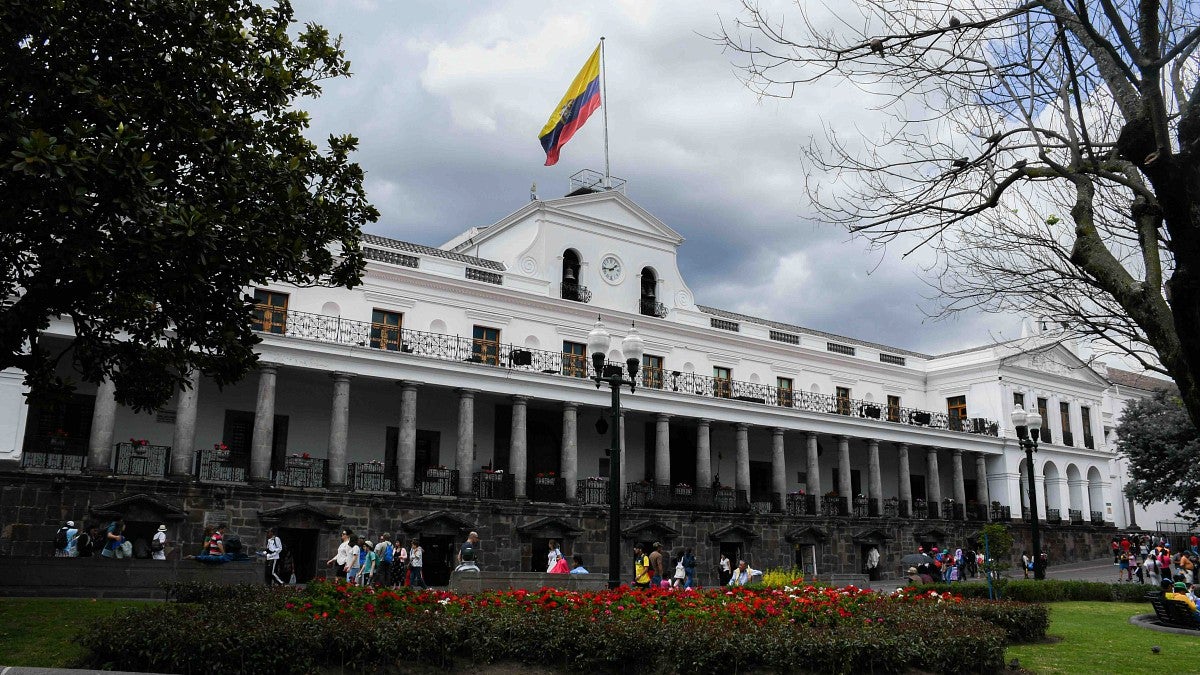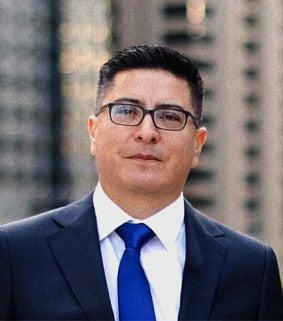
When Ecuador was considering whether to align its economy to the US dollar, a policy decision that would ripple across its economy and society, the Latin American country’s decision-makers had more in common with international elites rather than its people, according to research from a College of Arts and Sciences sociologist.
New research co-authored by CAS sociology assistant professor Byron Villacis Cruz explores the forces that influenced Ecuador to adopt the dollar in 2000, which impacted the country on social and economic levels. Policymakers supported their decisions not on research but were politically based, according to Villacis Cruz. Only after laws were passed did researchers step in to defend the policies.
“Especially in the Global South, there's a much more reduced level of autonomy between the elites and the people who produce knowledge,” Villacis Cruz said.
Dollarization in Ecuador
Villacis Cruz and co-author William Echeverria of Universidad UTE warn that this pattern of decision-making holds relevance today as transnational elites push countries to pass laws and plans, particularly those addressing climate change, global trade governance and monetary policy.

Echeverria and Villacis Cruz published their findings in the article “The Subordination of Economic Expertise: The Case of the Ecuadorian Dollarization” in the July 2025 issue of the journal Historical Social Research.
Dollarization of an economy ties a country’s economy to the U.S. dollar, limiting the country’s economic autonomy. In Ecuador, economic debates about the policy centered on inflation, Villacis Cruz said. But a focus on economic metrics ignored the trends that followed dollarization, such as unemployment, immigration, equality and suicide rates.
“The Global South is often used as a testing ground for policies designed by and for the Global North,” Villacis Cruz said. “For example, dollarization in Ecuador was backed by financial elites who wanted to see whether the experiment would work, with little consideration for the social costs.”
Expert knowledge and international organizations
With any policy debate in a country, an expert opinion often carries more weight. Being an expert is an earned label if the person has credentials or belongs to a professional field that requires advanced knowledge. But these experts need a way to connect with audiences and share their knowledge.
Villacis Cruz and Echeverria found three types of connections that information found its way to policy makers. The first was mass media, including newspapers and news channels. These are channels owned by elites in the country, Villacis Cruz said.
Then there are international organizations — such as the International Monetary Fund and World Bank — that produce policy recommendations for developing countries. The experts that make up these organizations are often based in the Global North, such as Western Europe and the United States.
Lastly, the people who attend universities in the Global North are treated as more educated than those who attend schools in the Global South. Those who pursued higher education in the Global North understand the academia publishing process, Villacis Cruz said, so they can publish findings in journals that reach a wider audience.
“Some people from the Global South with experience in the public sector, with experience in public policies, don't have the means to be heard, don't have the access to have those connections with the elites," Villacis Cruz said. “At the end of the day, these factors all create some sort of homogeneous and specific knowledge that isn’t diversified."
The legacy of dollarization and international knowledge
Policy discussions on dollarization of the economy happened more than 25 years ago, so researchers had to reconstruct conversations in the media and the backgrounds of various individuals. This included experts writing in the media, individuals close to the country’s central bank, and experts who created reports. They then explored their education, jobs, family, and more.
“So that's the first thing that helps to explain that knowledge that actually circulates in public policy circles,” Villacis Cruz said. “You find that it's not that diverse; it's not that balanced. So, you have to question; you have to see who is behind that knowledge and under what social conditions that knowledge is constructed.”
Today, the ideas that shape public policy are increasingly globalized and influenced by international power structures, Villacis Cruz said. People in smaller and weaker countries rarely question how these international policy ideas were formed, who it serves and what the costs and benefits are for their own country.
“My intention is to motivate people who are experts creating knowledge in climate change, monetary policy or global governance” Villacis Cruz said. “This research not only exposes how policies are imposed in the Global South; it also alerts how elites shape the very ideas that govern people’s lives in the Global North.”
— By Henry Houston, College of Arts and Sciences
